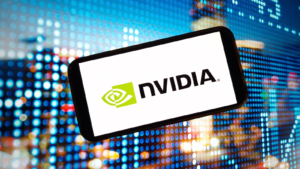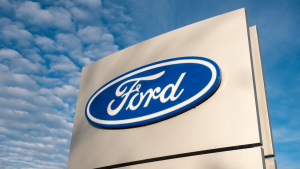Companies seem to have realized the importance investors place on dividends. Since the start of the year, several companies have more than doubled their distributions to shareholders, while other companies such as Meta Platforms (NASDAQ:META) have declared their first ever dividend payments. Asset manager the Janus Henderson Group (NYSE:JHG) reports that dividend payments from U.S. companies hit a record $164.3 billion in this year’s first quarter, with more growth expected.
Here is dividend delicacies: three stocks that will add flavor to your quarterly payouts.
GE Aerospace (GE)

Believe it or not, GE Aerospace (NYSE:GE) has raised its quarterly dividend payment to stockholders by an astounding 250%. The industrial giant that specializes in making aircraft engines now pays a quarterly dividend of 28 cents a share, up from 8 cents previously. The big dividend hike was announced after General Electric successfully broke itself into three separate publicly traded companies. GE Aerospace retains the traditional business of General Electric, including the company’s “GE” ticker symbol.
Now that it has hived off its healthcare and energy businesses into separate companies, GE Aerospace has announced plans to return capital to shareholders. At an analyst event in March, the company outlined plans to return 75% of its free cash flow to shareholders in the form of dividends and stock repurchases. GE Aerospace expects to generate $5 billion in 2024 free cash flow, which implies more than $3.7 billion in shareholder distributions. In addition to the dividend increase, GE stock has gained 60% so far in 2024.
Nvidia (NVDA)

Lost in the news of its blowout first-quarter financial results and 10-for-1 stock split was the fact that Nvidia (NASDAQ:NVDA) raised its quarterly dividend payout to shareholders by 150%. Normally, a dividend increase of that magnitude would generate its own headlines. However, it was overshadowed by news that Nvidia’s Q1 profit grew more than 600% and its sales were up 268% from a year ago. Retail investors cheered news of the 10-for-1 stock split, which will significantly lower the company’s share price.
Nvidia announced that it is increasing its quarterly dividend from 4 cents per share to 10 cents per share on a pre-split basis. After the split, the dividend will be only one penny a share. But that’s still decent considering that NVDA stock will likely trade at just over $100 per share after the split. Given the company’s torrid pace of growth, it likely won’t be long before the microchip designer boosts its distribution to stockholders again. Nvidia stock has increased 190% in the last 12 months.
Ford Motor Co. (F)

In March of this year, the Ford Motor Co. (NYSE:F) issued a special dividend payment to stockholders. The Detroit automaker said that it will pay a special dividend of 18 cents per share in addition to its regular dividend payment of 15 cents a share. The special dividend was meant to reward shareholders and was announced alongside better-than-expected financial results by the company.
In terms of Ford’s regular dividend payment of 15 cents, it currently has a yield of 5%, among the highest in the S&P 500 index. The high yield and special dividend payout make F stock more attractive to investors who have had to be patient with the company and its share price. Last fall, Ford endured a weeks long strike by the United Auto Workers (UAW) union that hurt its production. So far this year, Ford stock is flat (up 0.58%).
While it’s not a growth stock, Ford remains a stable blue-chip name and its dividend should appeal to value investors and those seeking to generate income from their holdings.
On the date of publication, Joel Baglole held a long position in NVDA. The opinions expressed in this article are those of the writer, subject to the InvestorPlace.com Publishing Guidelines.
Joel Baglole has been a business journalist for 20 years. He spent five years as a staff reporter at The Wall Street Journal, and has also written for The Washington Post and Toronto Star newspapers, as well as financial websites such as The Motley Fool and Investopedia.
